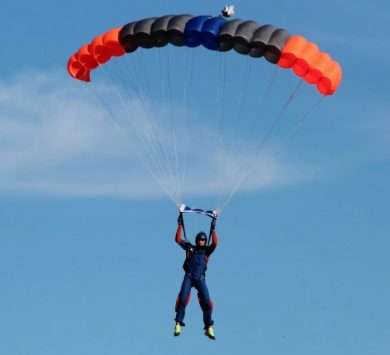Have you ever dreamt of experiencing the thrill of freefall and soaring through the skies like a bird? Skydiving is an exhilarating activity that allows individuals to push their limits and conquer their fears while enjoying breathtaking views from thousands of feet above the ground. However, before you embark on this adrenaline-pumping adventure, it’s crucial to understand the age requirements and safety considerations associated with skydiving.
Minimum Age Requirements
The minimum age to skydive varies depending on the country and the skydiving organization. In the United States, the minimum age for solo skydiving is typically 18 years old. However, some organizations may allow younger individuals to participate in tandem skydiving with an experienced instructor. The minimum age for tandem skydiving is usually 14 years old, with parental consent required for minors.
These age restrictions are in place for several reasons. Firstly, skydiving requires a certain level of physical maturity and coordination. Younger individuals may not have fully developed motor skills and muscle strength to safely execute the necessary maneuvers during a skydive.
Secondly, skydiving involves understanding and following complex safety procedures. Minors may not have the cognitive ability to fully grasp the risks involved and make informed decisions during the skydiving experience.
Finally, legal considerations play a role in determining age requirements. In many jurisdictions, minors are not legally permitted to sign waivers or participate in activities that carry inherent risks without parental consent.

Medical Considerations
While meeting the minimum age requirement is essential, being in good physical health is equally important for skydiving. Individuals with certain medical conditions, such as heart disease, respiratory problems, or musculoskeletal disorders, may be precluded from skydiving due to the potential risks these conditions pose during the jump.
Before embarking on a skydiving adventure, it’s mandatory to undergo a medical evaluation to ensure you are fit for the activity. The medical examiner will assess your overall health, review your medical history, and discuss any potential concerns. If you have any pre-existing conditions, it’s crucial to disclose them to the medical examiner to ensure your safety during the skydive.
Parental Consent and Waivers
For minors who wish to skydive, parental consent is mandatory. Parents or legal guardians must be fully aware of the risks involved in skydiving and provide written consent for their child to participate. This consent ensures that parents understand the potential dangers and have given their approval for their child to proceed with the activity.
Skydiving, like any adventurous activity, carries inherent risks. Before participating, individuals must sign a waiver acknowledging these risks and releasing the skydiving organization from liability in case of any injuries or accidents. It’s crucial to carefully read and understand the terms and conditions of the waiver before signing.
Skydiving is an exhilarating and unforgettable experience that offers a unique perspective of the world from a bird’s-eye view. While age restrictions and safety considerations are in place to ensure the well-being of participants, understanding these requirements doesn’t diminish the thrill of this adrenaline-pumping adventure.
If you’re considering taking the plunge and skydiving, be sure to research reputable skydiving organizations, meet the age and health requirements, and prioritize safety throughout the entire process. With proper preparation and guidance from experienced instructors, you can embark on a skydiving adventure that will leave you with memories that last a lifetime.
